Final year project
NEAT | Homegrown, Plant-based Meat. [Read more]
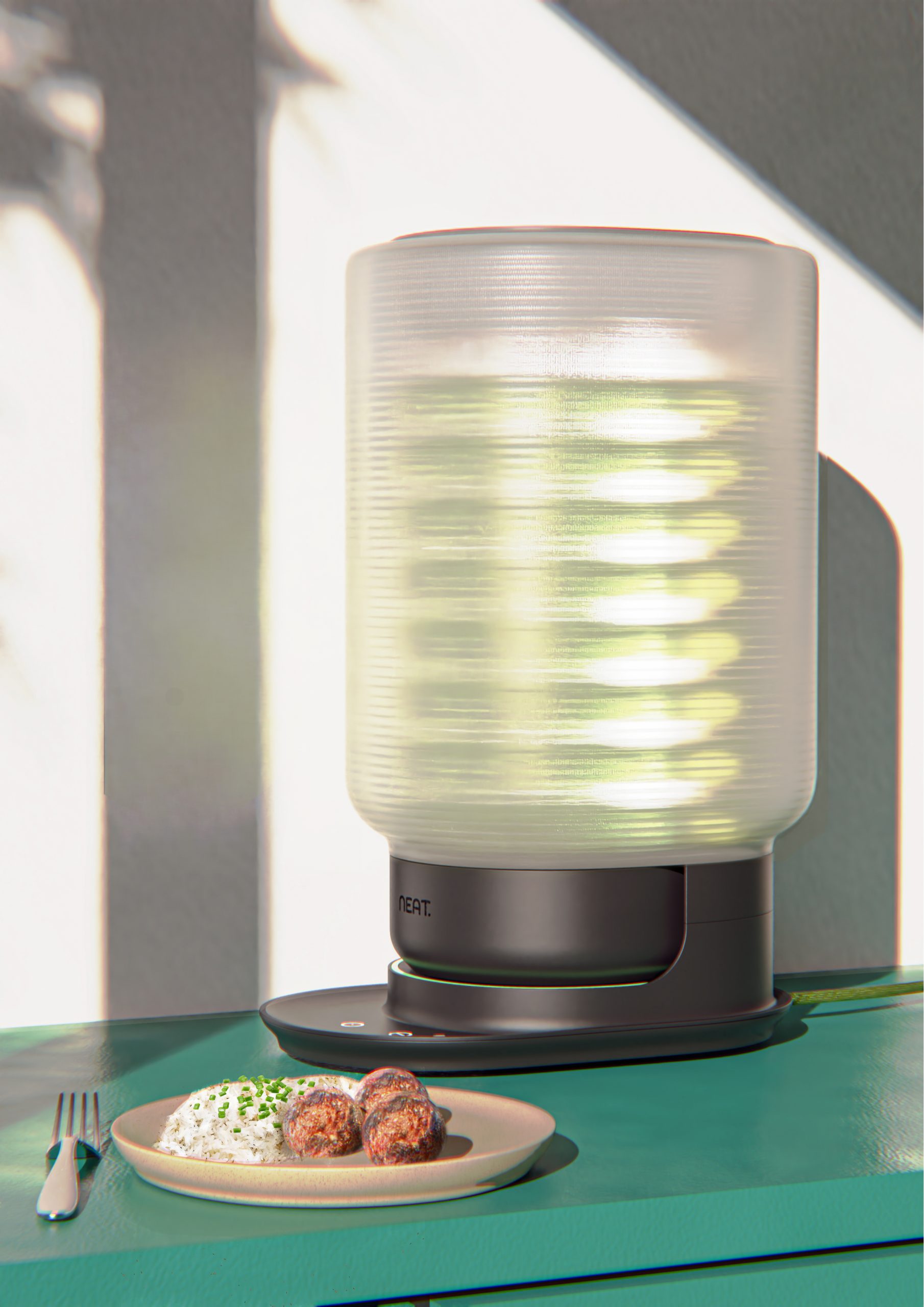
NEAT | Homegrown, Plant-based Meat.
Causing a quarter of all greenhouse gases, the food industry is having a detrimental impact on our planet and society. Change cannot come soon enough and by 2050 we will need to have reduced our meat consumption by 90% to avoid irreversible damage. Furthermore, 76% of urban homes have no access to sustainable food options – due to availability and price.
Meet NEAT. NEAT is an at-home protein system which exponentially grows a Southeast Asian protein called Khai-Nam. Khai-Nam is one of the fastest-growing protein sources in the world, capable of doubling in mass every 48 hours (compared to 50 days for cattle). With NEAT, you can grow, personalise, and process your protein into tasty NEATballs, within the comfort of your home.
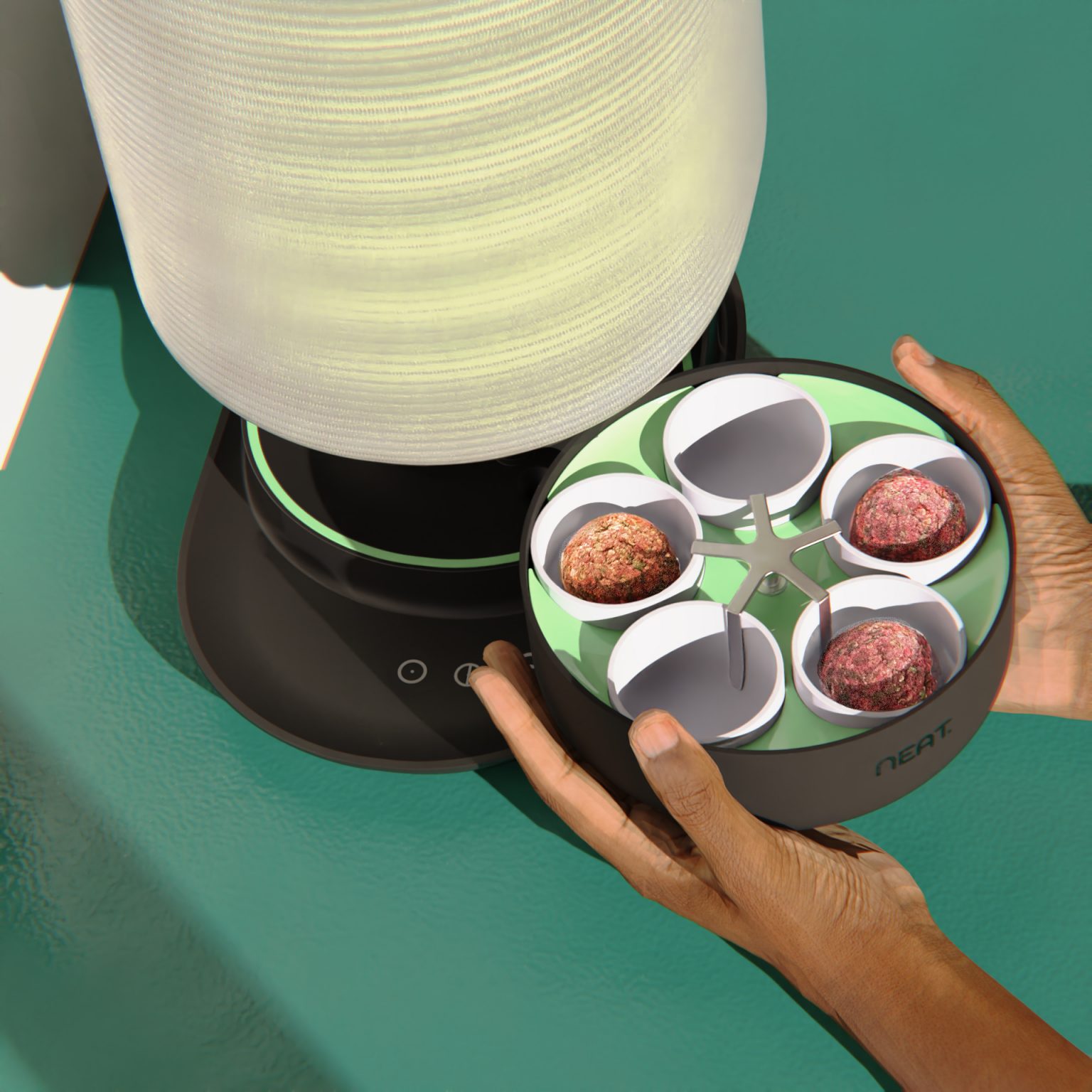

NEAT | Usability
Neat is designed to be as simple and accessible as possible without any culinary skills required.
The processing base mixes the Khai-Nam with additional flavour pods to create Neatballs which can then be cooked by the user. One Neatball can provide a quarter of your daily protein requirement. Its exponential growth rate and high protein levels mean that Neat can reclaim its initial financial investment within 6 months.
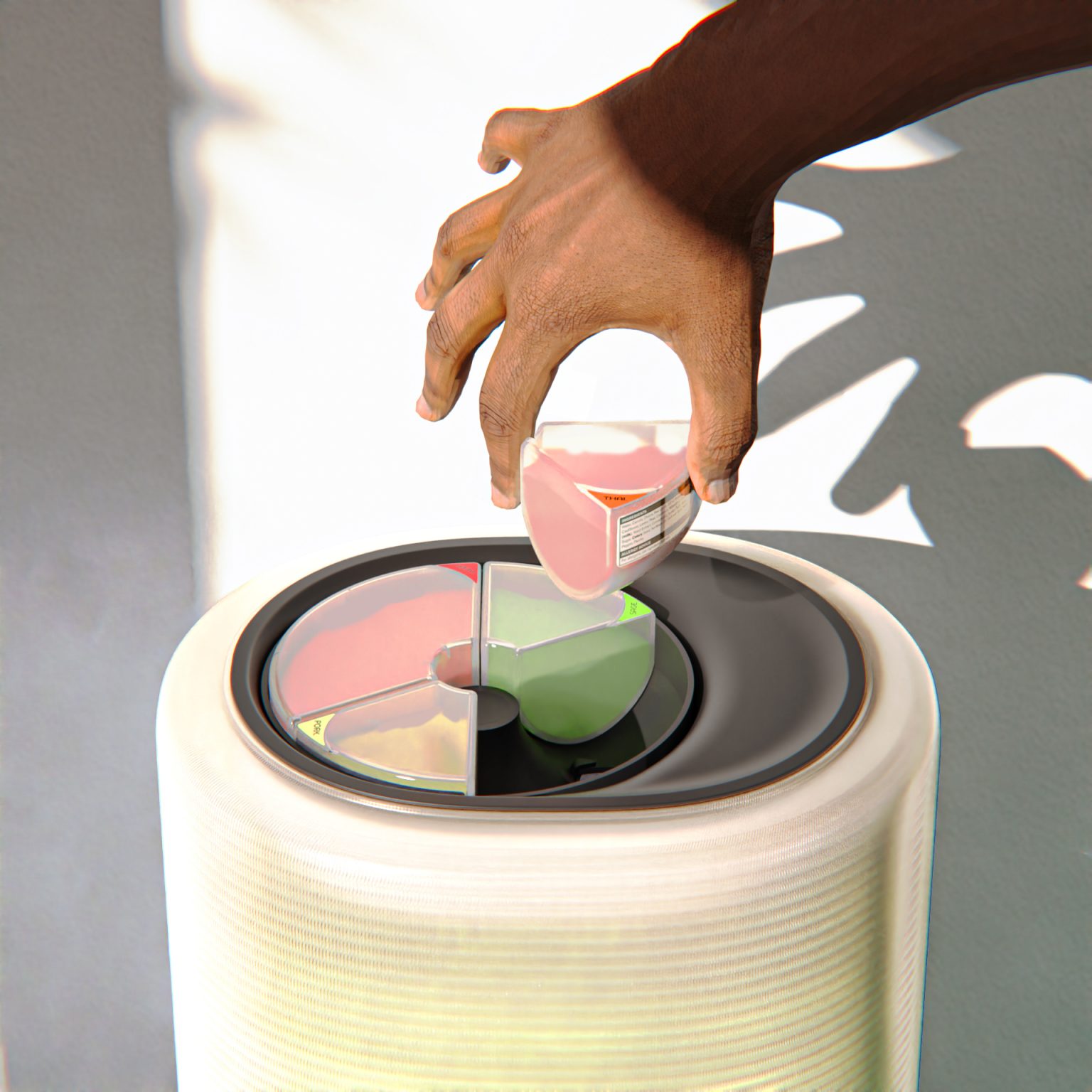

NEAT | Personalisation
Neat can replicate all your favourite flavours and cuisines. Chicken? Beef? Thai? No problem. Simply insert your desired flavour pod into the top plate ready for consumption. One flavour pod has enough flavouring to produce approximately 10 Neatballs.


NEAT | Prototyping
To establish the feasibility and internal components of Neat, extensive prototyping was completed. The key areas of development were:
• The dispensing mechanism, which measures and releases a specific quantity of flavouring.
• The protein mixer, which combines the ingredients and forms the protein into a meatball shape.
• Water movement, which accelerates the growth of the Khai-Nam and allows it to travel down the system.


NEAT | Experiments
In order to grow a substantial amount of protein, the growing conditions had to be optimised and concentrated into the smallest footprint possible. Numerous growing experiments were conducted to investigate how: water nutrients, PH levels, light intensity and water oxygenation affects growing results.
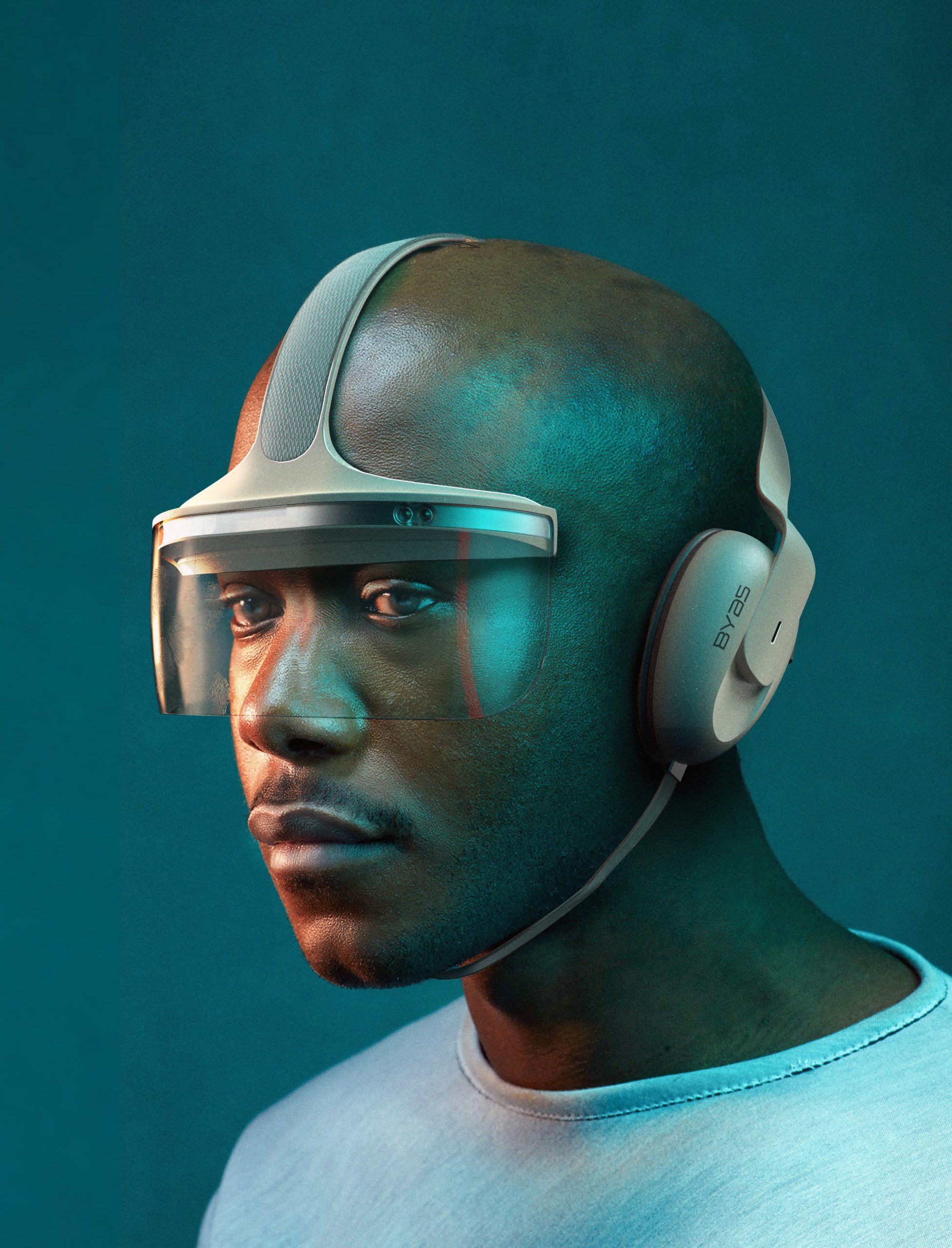

BYAS | Design Week
The criminal justice system is filled with gender and racial biases which affect both men and women. On average, males have an 88% higher chance of being convicted, compared to women accused of the same crime. However, women are also unfairly treated. 57% of women have felt like they are not taken seriously in a courtroom, compared to only 7% of males.
No matter your gender, race, or age, BYAS ensures the protection of implicit discrimination within the criminal justice system.
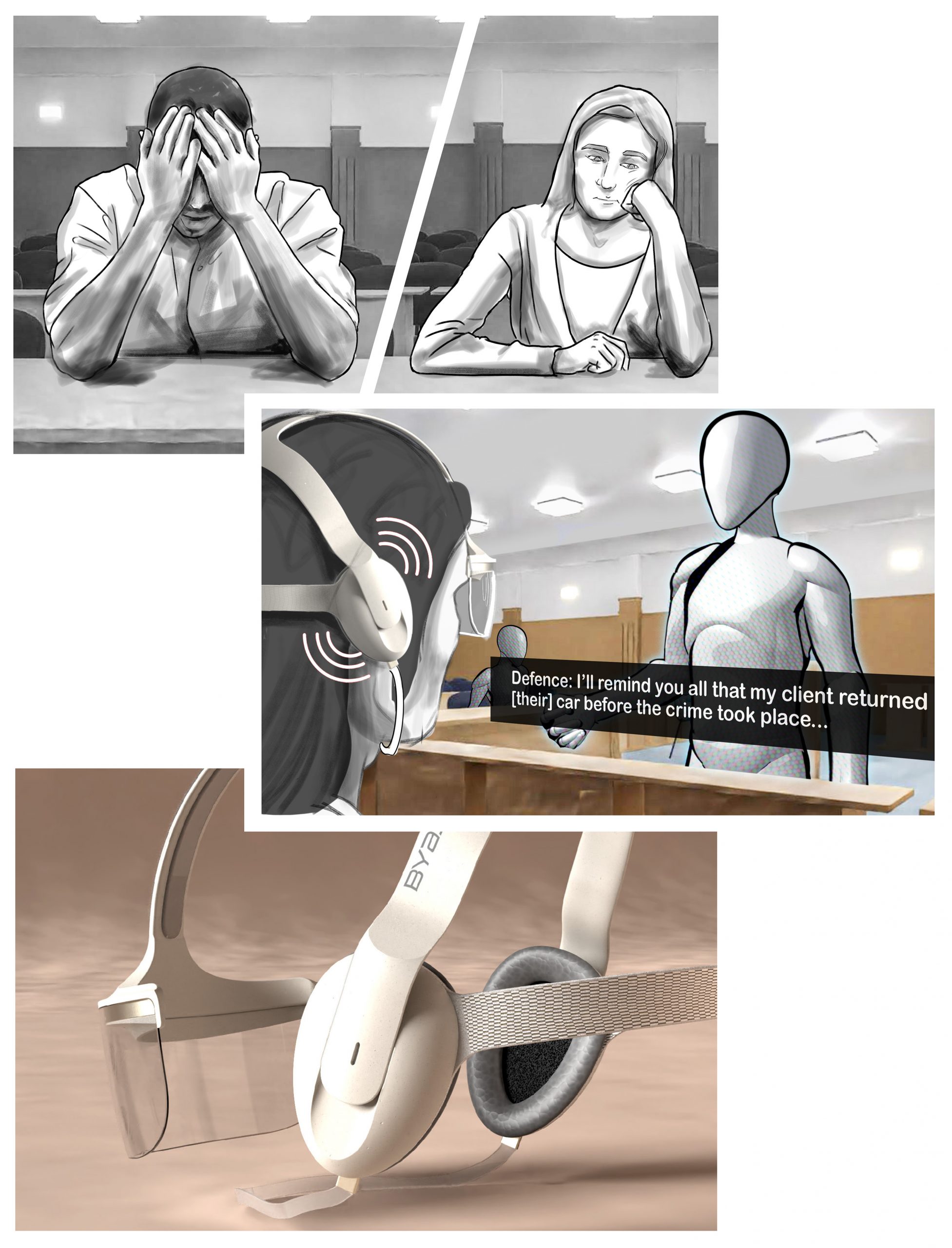

BYAS
BYAS is a multi-sensory augmented reality system for the judge and jury during the trial. The headset utilises body tracking technology and projects gender-neutral avatars over the top of the participants to remove any preconceived biases. Noise-cancelling headphones modify the audio experience to allow for complete anonymity and anti-tamper straps stop the jury from removing the headset.
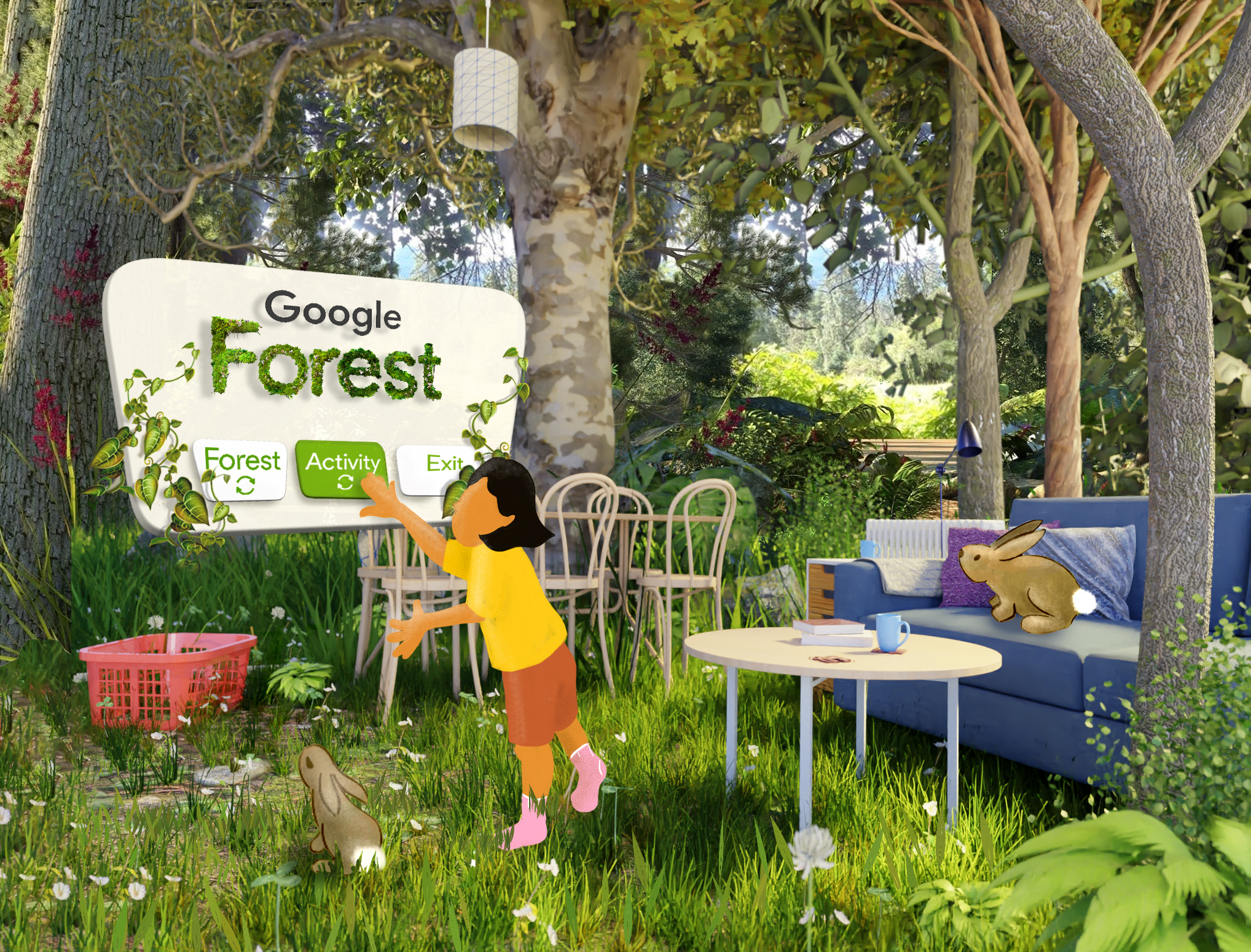

Google Forest
The 2020 Cream Collective brief was to ‘turn new hope into new action’, so we created Google Forest, an augmented reality experience to give inner-city children the chance to play in nature. We incorporated fine and gross motor movements into ‘challenges’ within the game, aimed at triggering a child’s brain growth without needing access to large amounts of space. Group members: Lloyd Potter and Lauren Postlethwaite.
Lloyd Potter
An empathetic problem solver who loves simple, well-considered design experiences.
I feel strongly about using my position as a designer to tackle the inequalities around me – such as income inequality, sexism, and the education attainment gap. My main aim is to encourage behaviour change, hopefully leading the user towards a more sustainable and accessible future.
Because of this, I enjoy research-driven roles where the design can be shaped from a deep understanding of the root problem. Using this approach, I strive to design thoughtful products and experiences that can slot into somebody’s everyday life.
Final year project
NEAT | Homegrown, Plant-based Meat.
Awards
Scholarship for Academic Excellence 2020
This was awarded by Loughborough University for achieving the highest performance across the entire School of Design and Creative Arts.
Cream Collective 2020
I was a winner of an international UX and Advertisement competition which saw my work featured in Campaign Magazine. The Brief was to "turn new hope into new action" which resulted in a multi-sensory augmented-reality game for under 5's.
Diploma in professional studies 2021
This was awarded for my year in Industry at Smallfry and the completion of my dissertation: "How will the evolution of Industry 4.0 affect the role of an Industrial Designer".
Work Experience
Smallfry, 2020
During my Design Internship, I participated in a wide selection of briefs within the medical, consumer and industrial sector. While at Smallfry, my responsibilities grew and several of my developed concepts are now being developed further towards manufacture.